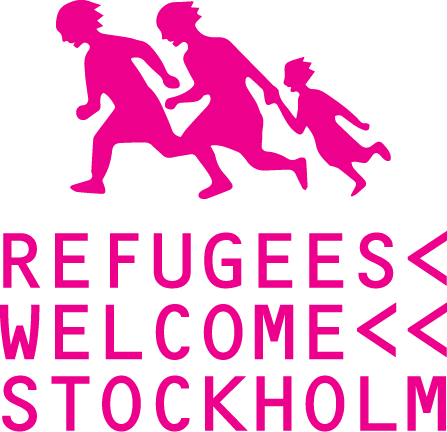How it all began
Back in September 2015, people who had been displaced traveled through Europe to come to Sweden and its capital city Stockholm. They had crossed country after country, border after border, heading towards the Nordic countries. For some of them, Sweden was the final destination, but others had their sights set on Norway or Finland.
According to the Dublin Regulation, people without a residence permit must seek asylum in the first E.U. country they reach. Most reach Greece or Italy first but, for various reasons, many continue traveling to seek asylum in other countries. In Sweden, the Swedish Migration Board (Migrationsverket) takes care of those who choose to seek asylum in the country and, under the Dublin Regulation, there exists no other categories of refugees. The so-called ”transit refugees” who arrived in Stockholm without the intent to seek asylum had therefore nowhere else to go while waiting for the next train headed farther north.
As the situation was unfolding, many Stockholm residents started to converge towards the central station in order to offer newcomers a dignified welcome and see if they could help in any way. Rallying around the slogan “Refugees Welcome”, people started to gather food, blankets, tables and chairs and set up a makeshift reception hall at the station. Doctors and nurses joined in, offering medical care to those in need. Volunteers took to their cars and started offering rides to and from the emergency short-term accommodations which had been set up in mosques, churches, schools, cultural centers, as well as scouting and association facilities.
A few days later, as more displaced people continued to arrive and all emergency accommodations’ capacity was getting full – and despite the fact that many people were only here in transit – volunteers at the central station realised they needed to open additional accommodation, but with several hundred beds this time. Using their contacts, they managed to gain access to a club house on Nobelberget (Nobel Hill) in Sickla. And the movement Refugees Welcome Stockholm was born!
The temporary transit accommodation on Nobelberget remained open for two weeks, during which about 1,700 volunteers helped provide more than 4,000 people with beds, food, medical care, clothing and legal advice. During the second week, activities were allowed to continue thanks to the #ennatttill fundraising campaign conducted on social media.
Following the closing of the Nobelberget facility, Refugees Welcome Stockholm continued to welcome people at the central station and ran a small accommodation on Kvarnholmen in Nacka during two winter weeks.
—
People’s Campaign for the Right of Asylum (Folkkampanj för Asylrätt)
On 24 November 2015, the Swedish Government presented measures, which constitute a blow to refugees. Indeed, these measures entail that people without identification are not allowed to seek asylum, neither can they get a temporary residence permit in Sweden, making it very difficult for broken families to reunite. The legislation aims to prevent or deter refugees from coming to Sweden.
As a result of the law, Refugees Welcome Stockholm and several other organizations launched together the People’s Campaign for the Right of Asylum. The campaign was meant to gather all of those who wanted to protest against the government’s plans and its consequences. Throughout spring 2016, the campaign ran in both traditional and social media. By the time the campaign’s petition was submitted to decision-makers ahead of the formal vote in Parliament, a total of 68,150 people had signed it. Nonetheless, the parliament voted in favour of the proposal on 21 June 2016.
—
Rosa Stationen
The project Rosa Stationen (The Pink Station) started in March 2016, in partnership with Birkagården in Vasastan and Dieselverkstaden in Nacka. Rosa Stationen is a meeting place for Swedish residents and newcomers. Participants are offered a number of activities, including Swedish language classes, a language café, legal advice, community information, activities for the disabled, cultural activities, games and babysitting.
During that first spring, Rosa Stationen was run by Refugees Welcome Stockholm volunteers and Birkagården and Dieselverkstad personnel. Going forward, the idea is to extend the concept with new similar partners at new venues and, together with volunteers, create communities wherever there is a need for them.
—
Advocacy
In parallel with its activities focusing on emergency assistance and meeting places, Refugees Welcome Stockholm has always worked actively to influence decision-makers to improve the situation for refugees. On the basis of every human being born equal, Refugees Welcome Stockholm sees a clear need for free and legitimate routes into Europe and for a willingness on the part of states and nations to welcome those who are coming in order to create the necessary conditions for them to find their place in society. Using social and traditional media as well as public debate, Refugees Welcome Stockholm raises awareness for these needs.
—
Statutes
For additional information about how Refugees Welcome Stockholm functions as an organisation, please check out the statutes here.
